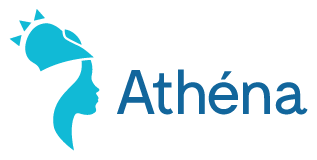More coherence, more transparency, less fear
During a recent panel discussion on conspiracy movements, UQAM clinical psychology professor Ghayda Hassan helped us understand that, throughout history, fear campaigns have never been an effective way to compel people to modify their behaviours and follow governmental measures. What’s needed, as we well know, is for government authorities to be coherent and transparent. Yet, with the majority of our questions still hanging in the balance, one has to wonder about their chosen communication strategy.
A Police State is not a Determinant of Health
The curfew announced yesterday raises questions, not only in terms of how it is meant to help control the pandemic but also in terms of human rights. Who is responsible for enforcing this curfew, and how? Why have public health measures become a matter for police to handle? An important question, particularly when the last few months have demonstrated how racial profiling and systemic racism continues to be a problem for law enforcement.
We know we’re all running out of steam. Today, doing everything they can to keep our public health afloat, workers, mothers, citizens are all nearing burnout. Some are already there. All the more reason why efforts must be effective, relevant and invested in the right places. We need solutions that will support the public services we’ve sadly watched become dismantled over recent years. We need solutions that are informed by sound scientific evidence.
“(…) if we are to successfully contend with COVID-19, certain things must be rectified and fast. This includes understanding that virus transmission is primarily a function of aerosols and taking action on improving indoor ventilation in both our schools and our health institutions. This also includes securing the necessary resources to improve testing capacity and contact tracing, putting a real end to healthcare workers travelling daily between different care institutions, improving working conditions to help healthcare workers stay on the job and stop contending with burnout, organizing vaccination efforts to effectively reach those who are most vulnerable, at risk, and asking to be vaccinated, etc.,” explains Alexandra Pierre, President of Ligue des droits et libertés in their January 6 press release.
Coherence
Though lost in the shuffle during the daily press briefings throughout the pandemic, the community sector and its concerns remain on target. In an article published last year in March, L’R denounced the lack of diversity among decision makers involved in managing the health crisis. Decisions informed solely by the views of white men of privilege inevitably lead to blind spots which leave many out of the equation. What are individuals who are homeless to do after 8 p.m.? We are told that shelters will be made available to them, so are we to believe that the capacity of homeless shelters can now magically meet all these needs? What about sex workers who cannot claim COVID-19 benefits? If working nights is how they put food on the table and pay rent, what are their options now? Should evening support groups for victims of domestic violence simply close up shop? Will women leaving their homes to get help be arrested? It’s tenuous to ask that we trust the good judgment of police officers who have not had adequate gender and racial training.
One thing is certain: until these blind spots are eliminated, women’s centres will be there, for as long as it takes, to demand more coherence in how this health crisis is managed. Using fear and increasing police power are simply not the right ingredients to solve this problem.
Transparency
During a December 9 parliamentary commission session, co-spokesperson for Québec solidaire Gabriel Nadeau-Dubois asked Québec Public Health Director Dr. Arruda whether he would heed recommendations about building ventilation and take stock of aerosol virus transmission. Dr. Arruda stated that he was waiting for an expert report on the matter before making a decision. A month later, we have still not yet seen this report and we continue to wait for his answer.
During yesterday’s press conference, a journalist asked Dr. Arruda about what evidence lay behind the curfew strategy as a good way to reduce hospitalizations. His answer: none. Instead, he explained that measuring the effectiveness of individual measures was not possible. Yet, he had not been asked about rates of effectiveness, but about scientific evidence. Quebecers are entitled to know on what basis their rights and liberties are being impinged upon. The government must absolutely disclose the expert reports on which decisions are taken. We have a right to know what science says about these measures. We need to gauge the extent to which partisan politics are part of the decision-making process. Our position is that public health authorities have a duty to inform citizens about what drives public health measures during times of crisis.
We must all demand transparency, especially women’s groups. Women have been particularly impacted by the choices made by government during this pandemic, as evidenced in underfunded sectors where women make up the majority of the workforce, where working conditions are difficult, and where women make up the majority of service users. The fact that women’s rights are overlooked time and again during times of crisis — in the name of the common good — is not new. Countless mothers stay home when the local daycare is closed. Countless more healthcare attendants do not get vacation when long-term care homes are short on personnel. When the rights and liberties of a few are taken away, we must all be concerned.
“Never forget that a political, economic or religious crisis will be enough to cast doubt on women’s rights. These rights will never be vested. You will have to stay vigilant your whole life.”
Thanks for this reminder, Simone. On this we will stay vigilant. On this we will keep a critical eye.
